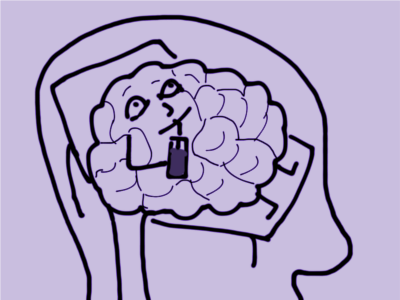
Some intuitions can be our worst enemy when it comes to making financial decisions. The challenge is that we have very little capacity to correct our mental lapses through our own efforts. Because self-help methods offer little help, savvy investors need to seek others for support.
At the end of an exhausting summer job between my junior and senior year in college, I received a fax advertisement (this was before e-marketing caught on) offering major discounts on vacation resort rentals for a bargain price. By reserving spots at resorts around the world, I could take up to seven friends on six different trips. Even a so-called free Carnival cruise for two was thrown in. I couldn’t resist.
After reading Daniel Kahneman’s latest tome on behavioral psychology, Thinking, Fast and Slow, I am now better able to identify the red flags that should have warned me to stay far away from this sales pitch. Several tips-offs were available.
The first element to identify in this story is that I was tired. We should all be wary of making any financial decisions when we are fatigued. Kahneman, a cognitive psychologist who won the Nobel Prize in economics in 2002, argues there is a strong mental proclivity to get a job done with as little effort as possible. We make most of our decisions using gut feelings, which Kahneman describes as System 1. We avoid doing the hard work of reading the fine print because it requires effort, or System 2 thinking. And System 2 resists being forced to exercise, especially when we are taxed physically. In my case, the purchase price was only the beginning of a litany of booking and usage fees.
Thus with System 2 on the sidelines, I was relying entirely on my intuitive System 1 brain. Kahneman uses the following simple puzzle to remind readers how often System 1 intuition can break down:
A bat and a ball cost $1.10.
The bat costs one dollar more than the ball.
How much does the ball cost?
What is the first number that came to your mind—10¢? This puzzle evokes a quick answer that is both intuitive and wrong. The correct answer is 5¢. Our System 1 thinking can often trick us. We need System 2 to take over and analyze the problem rationally.
The second red flag should have been the retail price, boldly printed as the focus of the advertisement. This brilliant marketing technique is known as anchoring. Instead of considering what I really thought this package deal was worth, my mind was anchored on a price far above what any rational person would pay. The discounted price seemed all the more generous, so I had to snap it up.
Kahneman uses the following example to consider how anchoring primes our mind. Try answering the following two questions:
Is the height of the tallest redwood in California more or less than 1,200 feet?
What is your best guess about the height of the tallest redwood?
In a test at the San Francisco Exploratorium, 844 feet was the average answer given for the tallest redwood. However, when the anchor in the first question was changed to 180 feet for a second group, the average answer was 282 feet. The difference between the two groups was 562 feet. That’s the power of anchoring.
Kahneman’s book offers many other insights into how our brains can be tricked. We are often overconfident. We are swayed by narrative stories and good causes rather than statistics. We follow the herd. We feel the pain of a loss twice as much as the utility of a gain.
Even when we are made aware of these problems, we have little capacity to overcome them. Kahneman stresses that he is just as susceptible as the rest of us to the cognitive illusions he has discovered. Kahneman argues that instead of trying to train yourself, his hope is that his book can help you help others. Kahneman writes, “It is much easier, as well as far more enjoyable, to identify and label the mistakes of others than to recognize our own.”
Whew. I claim this to mean that my impulsive purchase of the vacation resort package doesn’t invalidate my financial advising skills. It does mean that even the most gifted financial advisors are not off the hook for seeking their own counsel when making financial decisions. It takes another person outside of the situation to help you identify problems in your reasoning. The question is whether you are willing to seek this type of advice.
This book also explains why most people seek help to manage their finances. Personal financial issues often cause great stress, which is exactly the type of pressures you must avoid when making important planning decisions. We need others who can speak to us about our lives. But choose your confidants wisely. Most financial advisors are hazardous to your wealth.
2 Responses
Dale Seng
I’ve read Kahneman’s book too. If you find human nature interesting, you might also try “The Righteous Mind”. Although that book has a subtitle about religion and politics, it’s really about how quirky we all are in our thoughts and actions (human nature).
Matthew Illian
Thanks Dale, I just read some reviews and it looks like one I need to add to my reading list. I’m really fascinated by behavioral psychology right now. My column posting on this Wednesday 7/10 follows this track.